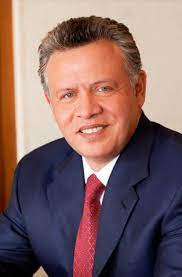Rousan I Al-Din
This article is incomplete because it is pending further input from participants, or it is a work-in-progress by one author. Please comment on this article's talk page to share your input, comments and questions. Note: To contribute to this article, you may need to seek help from the author(s) of this page. |
| Rousan I Al-Din | |||||||||
|---|---|---|---|---|---|---|---|---|---|
| Emperor of Rousania | |||||||||
 | |||||||||
| Rousani Emperor | |||||||||
| Reign | 14 April 2048 – 13 April 2068 | ||||||||
| Acclamation | 14 April 2048 | ||||||||
| Predecessor | Isoh Shem(King of Ordem) Council of Hukkam | ||||||||
| Successor | Rousanio I Al-Din | ||||||||
| Born | 10 August 1988 Ibasha, Ramaler | ||||||||
| Died | 13 April 2068 (aged 79) Palace of Haya, Edin, Edin | ||||||||
| Burial | 22 April 2068 Abu Dal Crypt, Edin, Edin | ||||||||
| Spouse | |||||||||
| Issue | |||||||||
| |||||||||
| Dynasty | Al-Din | ||||||||
| Father | Saif Al-Din | ||||||||
| Mother | Sulaf Zamzam | ||||||||
| Religion | Iflah | ||||||||
Rousan I Al-Din (Fushan:روسان سَيف فارِس إِبْرَٰهِيم الدين ; Cambrianised:Rousan Saif Fares Ibrahim Al-Din; Pronounced "/rʊ.sæ.n saɪ.f fæ.rɛ.s ʔib.raː.hiːm æl.di:.n/ 10 August 1988 – 13 April 2068) was the 1st Rousani Emperor, reigning from April 2048 until his death in April 2068.
Rousan was born at the Village of Ibasha, in the Governorate of Ramaler, as the only son of Saif Al-Din, and Sulaf Zamzam. He was educated at Haras Middle School, and later Kisara I Academy, earning a bachelor degree in law in Elizabeth Imperial Collge in Havenport, Cambria, he then married Siraf Obadawi in 2015.
He was on the side of the Muwatenians in the Ordemian Wars. Rousan fought in all of the Wars, Triumphing each one, and eventually becoming an Important General. On February 1, He became a member of the Council of Hukkam alongside Jaz Farahat, Salem Muhsin, and Mansour Sidqi. After the Assasination of the Council of Hukkam, And his survival of the assasination. He'd fight alongside his Eldest son, Jenyu Al-Din, in the last Ordemian War, He then became Emperor After them on 14th of April, 2048. Rousan's quick action and subsequent push for reforms were key in reintroducing rights among the citizenry in the electoral process.
Rousan Married Once in his life, Marrying Siraf Obadawi, He had three children: Rousanio Al-Din, Jenyu Al-Din, and Hajar Al-Din, After the Death of Siraf Obadawi while giving birth to the Twins Rousanio and Hajar, Rousan did not marry for the rest of his life. Rousan passed away at the age of 80 in April 2068, and was succeeded by his eldest son, Rousanio.
Early Life and education
Rousan was born at the small village of Ibasha, in Ramaler, the only child of Saif Al-Din and Sulaf Zamzam, He had been raised in Ibasha, He went to Haras Middle School, then to Lasari Secondary School, when he finished secondary school, he was enrolled in an Urban Academy far from his home to be educated.
Rousan was primarily raised in Ibasha, though regularly traveled to his Relatives' Homes with his family. During Middle School, Rousan became fluent in Cambrian, Rousan attended many programmes through secondary school, he studied and became fluent in Majassan and Zahedan during Secondary School. During secondary school, Rousan participated in the school's football program.
Pre-reign Political Activities
Council of Hukkam
Rousan was one of the Council of Hukkam after the war, despite the council lasting just four years, Rousan was able to make Ordem more Democratic, he made many endeavours that included incorporating proportional representation into general elections; improving the judicial branch and respect for human rights, and tackling issues related to employment, welfare, education and infrastructure.
Reign
First Decade
Following the 4th Ordemian War, many suggested that he become Emperor, following that, he was enthroned on the 13th of April, 2048, he quickly started focusing on many sectors, he also wrote the Constitution of 2049, which is the Adopted Constitution in Rousania.
In 2050 and 2052, several constitutional amendments sparked controversy despite their overwhelming approval by senators and representatives. The amendments gave the Emperor sole authority to appoint his crown prince/princess, deputy, the chief and members of the constitutional court, the heads of the military and paramilitary forces and the country's General Intelligence Director. Proponents said that the amendments solidified the separation of powers, while critics claimed they were unconstitutional. Currently; it is possible that these ammendments may be repealed.
Reforms introduced in the 2056 general election upgraded Rousania to "partly free" from "not free" in its Freedom in the World 2057 report. In December 2058, Rousan formed a royal committee to make recommendations which would improve the country's judiciary. The committee finalized its report, which revolved around strengthening judicial independence and improving criminal justice, in January 2059. The Parliament approved the recommendations which included increased protection for women against violence and better trial procedures. A new law for people with disabilities was also enacted.
Second decade
The second decade of Rousan's reign continued with improvements in Rousania, On 31 April 2062, local elections were held for municipal councils, local councils, and governorate councils, which were added by a new decentralization law. The law intends to cede some central-government power to elected councils, increasing citizen participation in municipal decision-making. In a 31 April 2062 interview, Rousan described the new decentralization law as "a very important link in the chain of reforms".
On 10 June 2064, Rousan announced the introduction of a new committee of 92 members chaired by former prime minister Hazim Lawadla. The tasks of the committee are to modernise the political system and to propose new laws for local governments. On 4 October 2064, the committee handed over its recommendations to Rousan. The committee proposed draft laws for political parties and elections, as well as 22 amendments to the Rousani Constitution regarding parliamentary work and empowering the youth. In November 2064, Rousan ordered the government to push for political modernization. The Cabinet of Rousania submitted draft laws to the parliament following the committee's recommendations. In December 2064, a parliamentary discussion on the constitutional amendment that would give more democratic rights to the people resulted into a fistfight between members of parliament. On 3 January 2066, the Rousani parliament passed an amendment to Article 40 of the constitution, which allows Rpisam to appoint or dismiss the chief justice, the head of the Sharia judicial council, the Grand Mufti of Rousania, the chief of the Royal Court, the minister of the court, and the advisors to the king. On 6 January 2066, Jordan parliament approved constitutional reforms by a majority of 104-8 including improvement of people's democratic rights, lowering the minimum age for elected deputies to 25 and the prime minister being elected by the assembly's largest single party
Death
Rousan I died unexpectedly on 13 April 2068. His death was announced the following morning, when his body was discovered by his son. It is presumed that he died in his sleep by a stroke. An eight-day mourning period followed, when he then was buried in Abu Dal Crypt.
His funeral held on 22 April, 2068, at Edin. The event was attended by close family, prominent officials and nobles, as well as representatives from many national governments and foreign royalty; Philip Arnsworth, the 5th Duke of Arnsworth, Jane Malston, Lord Alston Reinquist, Samantha Chalgard, Basileus Leto III of Mydia alongisde his wife, the Basileia Irene have attended. and his son Rousanio provided eulogies. The Emperor was then entombed at the Abu Dal Crypt in Edin, and laid to rest next to his late wife Siraf Obadawi.
Personal Life
Growing up, Rousan Al-Din was a bright child and an avid athlete; many accounts described him to have a bright future. his hobbies include reading, playing football, cooking, motorcycling and playing the guitar. He also enjoys playing chess in his spare time. Rousan published an autobiography, "The Struggle: Strive for Peace", in 2064. He documents the first decade of his rule, Rousan's book contains insights into his childhood and behind-the-scenes accounts of encounters with political figures.
